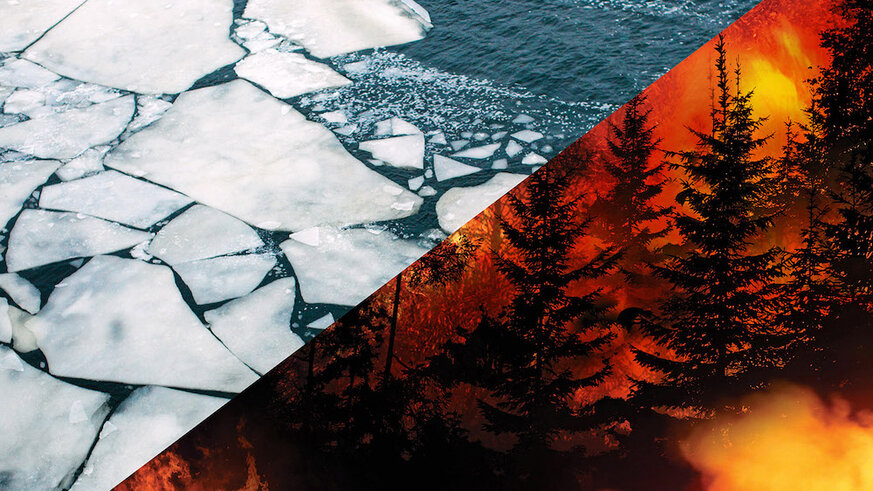11 Dec 2024

Tired Earth
By The Editorial Board

Melting sea ice in the Arctic is helping to fuel western US wildfires, scientists say.
The odd-seeming link was discovered by scientists at America’s Pacific Northwest National Laboratory (PNNL), in Richland, Washington, poring over data regarding the effects of climate change in North America.
Intriguingly, says Hailong Wang, a PNNL earth scientist, the team found that catastrophic blazes in 2020 occurred at about the same time as sea ice reached the second-lowest minimum ever recorded.
Curious to see if that was coincidence, Wang and his colleagues examined 40 years of historical data, then used climate models to determine how changes in the ice pack might affect the type of hot, dry weather patterns that produce major fires, thousands of kilometres to the south.
They found not only a very strong correlation, but a solid meteorological explanation for why it occurred.
The driving force, Wang said at a 13–17 December meeting of the American Geophysical Union in New Orleans, Louisiana, is the difference between how open water absorbs solar heat during the short Arctic summer – unlike ice, which reflects it back into space.
The more open water there is, he says, the more heat is absorbed – and the more there is to return to the atmosphere as autumn looms and the sea begins to cool.
The (relatively) warm air then rises, creating a long-lived low-pressure system that can alter the flow of the polar jet stream, pushing it southward.
That, in turn, facilitates the formation of hot, dry high-pressure systems over Washington, Oregon, and Northern California: exactly the type of conditions under which small wildfires can explode into large ones.
The correlation isn’t perfect, but it’s surprisingly strong, Wang says. “Compared to other factors like natural climate variability, Arctic-driven fire weather changes account for about half of the total,” he says.
It’s an unpleasant discovery for residents of those areas because climate models predict that sea ice will continue to diminish in coming decades, driving fire risk ever higher in a region already plagued by it. “[There is] a need to plan for it,” Wang says.
Other parts of the northern hemisphere, such as Siberia, might also be at risk, but to date, Wang says, the western US is the only region that has been studied. Also, he notes, the loss of sea ice has been most pronounced in the Pacific sector of the Arctic Ocean, closer to Alaska and Canada than to Siberia.
It’s an amazing example of climate “teleconnections,” he adds, in which climate effects in one part of the world can propagate over enormous distances.
He compares it to better-known patterns – such as El Niño and La Niña – in which sea surface temperatures in the western Pacific affect weather patterns far across the globe.
“Teleconnections like this are a bit like the butterfly effect, he says. “Conditions in one part of the world can influence climate thousands of kilometres away.”
In other words, one person’s climate problem, far away, may also be yours. Or as John Donne once put it in a different context: “Ask not for whom the bell tolls. It tolls for thee.”
Source : cosmosmagazine.com
Comment